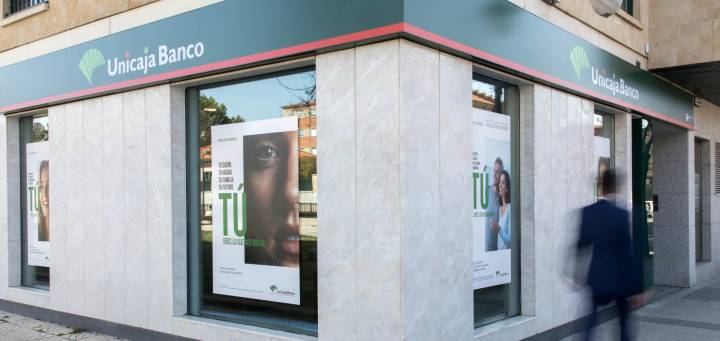The Unicaja Banco Group has obtained a net profit of 43 million euros at the end of the first quarter of 2021, which represents a decrease of 7.4% compared to the same period a year before, after allocating 25 million euros during this period to extraordinary provisions to reinforce coverage of the potential economic impact derived from the Covid-19 coronavirus pandemic.
It obtains a net profit of 43 million euros in what it expects to be its latest solo results, as it plans to formalize the absorption of Liberbank at the end of June
This was reported by the entity itself in a statement, in which it recalls that the merger process with Liberbank continues its course after the project is approved by their respective Extraordinary General Shareholders’ Meetings and provides that the obtaining of the mandatory regulatory authorizations will take place late second or early third quarter.
Unicaja Banco highlights that the main indicator of the evolution of the profitability of the recurring business, the basic margin, has grown in year-on-year terms by 2.8%, while the basic result increased by 27.8%.
According to the entity, the main keys to the results in the first quarter have been the improvement in the profitability of the basic business; the growth of business activity; the continued reduction of operating expenses; the decrease in non-productive assets “reinforcing the high levels of coverage”; the high solvency and liquidity ratios, “which confirm the strength of the entity to face the current situation and continue to respond to its clients in the current context of uncertainty”.
Specifically, Unicaja Banco has improved its basic margin (interest margin + commissions) by 2.8% in relation to the same period of the previous year, which occurs both in the interest margin (+ 3.6%) and in commissions (+ 0.9%). On the other hand, operating expenses have been reduced by 9 million euros (-6.1%) in relation to the same period of 2020, which has allowed to improve its basic result (interest margin + commissions – operating expenses) by 27.8% in year-on-year terms.
On the other hand, despite the delay in economic recovery after the pandemic, Unicaja Banco has continued to reduce its non-productive assets (NPAs) by 8.4% (-208 million euros) in the last 12 months and by 0 , 7% in the last quarter (-17 million). At the same time, the high level of coverage improves by 6.8 points compared to the previous year and by 0.7 points in the first quarter of 2021 to stand at 65.9%, having made extraordinary provisions for COVID-19 for an amount 25 million, which, including those made in 2020 for this concept, amounted to 225 million at the end of the quarter.
The financial director of Unicaja Banco, Pablo González Martín, has declined to offer details on the possible adjustment of offices and employment after the absorption of Liberbank and has informed that in the next quarterly results they will be presented as a merged entity.
During the presentation of the results of the first quarter, analysts and investors have asked the manager for details on the formal schedule of the merger, on the potential capacity adjustment and on the cost synergies that he hopes to achieve.
A single entity in July
The financial director of Unicaja Banco has indicated that the Unicaja and Liberbank teams are currently working on the integration of both entities and that it will be after receiving the regulatory authorizations when he is in a position to explain in detail “the final impacts” of the operation , negotiating the possible measures that affect the workforce with the workers’ representatives.
“At this time, as you can imagine, we cannot provide more details on specific measures. As we have done in the past, we will discuss the details with the unions and it is not the time to provide details,” González said of the potential restructuring process. .
The entity expects to obtain regulatory approvals at the end of the second quarter or early in the third. “If everything progresses as expected, we will publish the results for the first half of the year as a single bank, although this is conditional on receiving all authorizations,” explained González.
After having achieved a ‘green light’ by their respective shareholders’ meetings on March 31, the execution of the merger requires the pronouncements of the National Commission of Markets and Competition (CNMC), the Bank of Spain, the European Central Bank (ECB), the National Securities Market Commission (CNMV) and the General Directorate of Insurance and Pension Funds (DGSFP).




